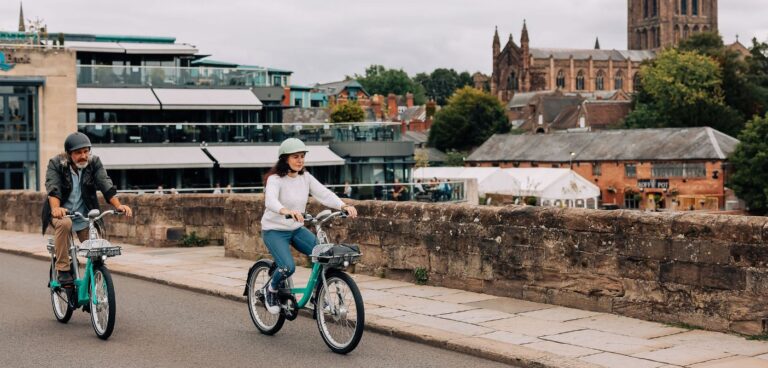Micromobility operator Beryl has released the results of its annual demographic survey revealing that there has been a drop in people’s confidence when cycling in traffic.
Based on 1,000 responses from people signed up to Beryl’s e-bike and e-scooter services, in Bournemouth, Christchurch and Poole, Hereford, Norwich, Watford and the Isle of Wight, the resulting data provides insights into how people are using micromobility schemes.
This year’s data highlighted the effect the Covid-19 pandemic has had on rider’s confidence. As last year’s survey was conducted when the number of cars on the road was reduced, and a range of temporary designated cycle lanes had been introduced, this led to people feeling more confident when cycling on main roads than this year.
Furthermore, the survey found this is particularly the case for female riders with 52% of whom said they felt ‘confident’ or ‘very confident’ in 2020, compared to just 38% this year.
Beryl said this adds to the existing bank of data which shows that quieter roads and better infrastructure are vital in encouraging more people to incorporate active travel into their daily lives. As a company, it pledges to continue to firmly and vocally advocate for the development of safe and continuous cycle infrastructure.
The impact of female riders feeling unsafe on roads is also having a detrimental impact on reducing car usage, according to the report. This is due to the fact that they are more likely to ride Beryl bikes for leisure and exercise purposes as opposed to for travel. As a result, 30% of men said they had reduced their usage of a private car, compared to 26% of women.
Beryl CEO, Phil Ellis, said: ‘’As the UK’s leading micromobility operator, we know from experience how important data and feedback is in understanding our users, identifying trends and ensuring that we’re providing services that are accessible, and work for everyone.
‘’We will continue to use insight like this to guide our data-driven approach, not only ensuring that our services are accessible in the areas they’re needed the most; but also advocating for the development of greater infrastructure for active travel.”
The survey did showcase the positive impact micromobility has on traffic reduction. It reported 52% of users are now cycling ‘more often’ or ‘much more often’ since they started using Beryl. 64% of those who already cycled now cycle ‘more often’ or ‘much more often’ and 45% of riders said they resumed after a break. 2% said they started cycling for the first time ever.
This leads to 29% of riders saying they have reduced their use of private cars, 36% reducing their use of public transport, and 39% reducing their use of taxis.
“By getting more people out of the car and using our bikes and scooters, we can play a key role in boosting public health and reducing traffic congestion as well as improving air quality and reducing carbon emissions,” added Ellis.





